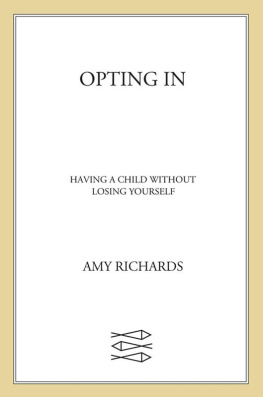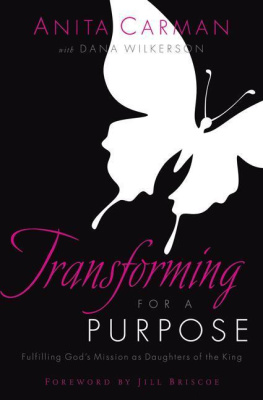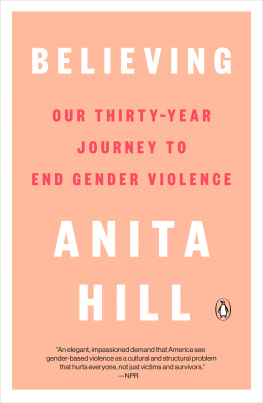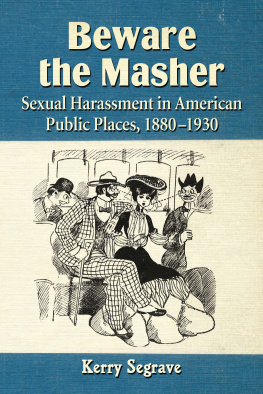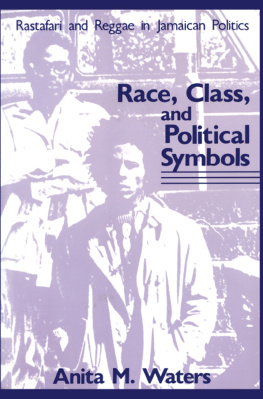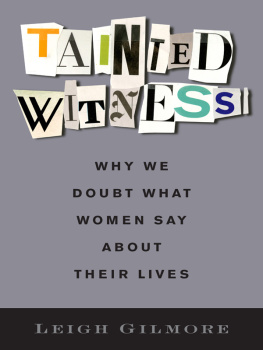I was just a few months out of college and settling into my first real job when Anita Hill testified before the Senate. Throughout my undergraduate work as a womens studies major, my mother and I often talked about feminism and activism. I was very moved by a special camaraderie we developed, sharing our mutual outrage over and experiences with sexism, misogyny, patriarchy. I vividly remember discussing the Hill-Thomas hearings with her, reflecting on the price and impact of a woman speaking truth to power. We were inspired, frightened, infuriated, and emboldened all at once.
Over twenty years later, I had the great fortune to work with the phenomenal array of feminist scholars, activists, artists, and leaders who gathered to honor and reflect on the historic imprint of the incomparable Anita Hill. It is my hope that the conference we created in October 2011, and this volume which grew from it, will inspire generations of like-minded, visionary rabble-rousers, who will help us achieve freedom, equality, liberation, and justice for women everywherein the workplace and far beyond.
Anita Hill and the work of all the women and men in this volume play a considerable part in that struggle. I am confident that among those who gathered with us that day at Hunter College, and those of you reading this book, are the leaders who will chart the next chapters of womens empowerment and achievementwhether in the academy or the body politic, in the media, the arts, or the world we navigate every day in our homes and on our streets. TheyYOU, for you are one of themwill blaze the next paths.
In the midst of recent debate on a bill that would ban abortions, Representative Lisa Brown was evicted from the Michigan state legislature for saying the word vagina. All these years after Anita Hills brave testimony, womens speech, experiences, and bodies are still deviant, destabilizing, censured. In the public outcry that ensued, one of my favorite images from the demonstrations was of a woman carrying a simple sign: I didnt come from your rib, you came from my vagina.
Bold truth telling and speaking out about everyday and outrageous acts of silencinglike that simple sign, like Anitas own testimonyis vital in continuing the fight for womens and gender equality, whether in the halls of government or in our own backyards. This is the same spirit that the conference lifted up, that this book carries forward.
What will you speak up about? What truth will you crack open and reveal? What will you change?
Cynthia Greenberg
ADDITIONAL EXCERPTS FROM
THE TESTIMONY OF ANITA HILL AT THE
CLARENCE THOMAS SENATE CONFIRMATION
HEARINGS, OCTOBER 11, 1991
Mr. Chairman, Senator Thurmond, members of the committee, my name is Anita F. Hill, and I am a professor of law at the University of Oklahoma.... I graduated from the university with academic honors and proceeded to the Yale Law School, where I received my JD degree in 1980.
Upon graduation from law school, I became a practicing lawyer with the Washington, DC, firm of Wald, Harkrader & Ross. In 1981, I was introduced to now Judge Thomas by a mutual friend. Judge Thomas told me that he was anticipating a political appointment and asked if I would be interested in working with him. He was, in fact, appointed as Assistant Secretary of Education for Civil Rights. After he had taken that post, he asked if I would become his assistant and I accepted that position.
In my early period there, I had two major projects. First was an article I wrote for Judge Thomas signature on the education of minority students. The second was the organization of a seminar on high-risk students, which was abandoned, because Judge Thomas transferred to the EEOC, here he became the Chairman of that office.
During this period at the Department of Education, my working relationship with Judge Thomas was positive. I had a good deal of responsibility and independence. I thought he respected my work and that he trusted my judgment.
After approximately 3 months of working there, he asked me to go out socially with him. What happened next and telling the world about it are the two most difficult things, experiences of my life. It is only after a great deal of agonizing consideration and a number of sleepless nights that I am able to talk of these unpleasant matters to anyone but my close friends.
I declined the invitation to go out socially with him, and explained to him that I thought it would jeopardize what at the time I considered to be a very good working relationship. I had a normal social life with other men outside of the office. I believed then, as now, that having a social relationship with a person who was supervising my work would be ill advised. I was very uncomfortable with the idea and told him so.
I thought that by saying no and explaining my reasons, my employer would abandon his social suggestions. However, to my regret, in the following few weeks he continued to ask me out on several occasions. He pressed me to justify my reasons for saying no to him. These incidents took place in his office or mine. They were in the form of private conversations, which would not have been overheard by anyone else.
My working relationship became even more strained when Judge Thomas began to use work situations to discuss sex. On these occasions, he would call me into his office for reports on education issues and projects or he might suggest that because of the time pressures of his schedule, we go to lunch to a government cafeteria. After a brief discussion of work, he would turn the conversation to a discussion of sexual matters. His conversations were very vivid.
He spoke about acts that he had seen in pornographic films involving such matters as women having sex with animals, and films showing group sex or rape scenes. He talked about pornographic materials depicting individuals with large penises, or large-breasted individuals in various sex acts.
On several occasions Thomas told me graphically of his own sexual prowess. Because I was extremely uncomfortable talking about sex with him at all, and particularly in such a graphic way, I told him that I did not want to talk about these subjects. I would also try to change the subject to education matters or to nonsexual personal matters, such as his background or his beliefs. My efforts to change subject were rarely successful.
Throughout the period of these conversations, he also from time to time asked me for social engagements. My reaction to these conversations was to avoid them by limiting opportunities for us to engage in extended conversations. This was difficult because at the time, I was his only assistant at the Office of Education or office for Civil Rights.
During the latter part of my time at the Department of Education, the social pressures and any conversation of his offensive behavior ended. I began both to believe and hope that our working relationship could be a proper, cordial, and professional one.
When Judge Thomas was made chair of the EEOC, I needed to face the question of whether to go with him. I was asked to do so and I did. The work, itself, was interesting, and at that time, it appeared that the sexual overtures, which had so troubled me had ended.
I also faced the realistic fact that I had no alternative job. While I might have gone back to private practice, perhaps in my old firm, or at another, I was dedicated to civil rights work and my first choice was to be in that field. Moreover, at that time the Department of Education, itself, was a dubious venture. President Reagan was seeking to abolish the entire department.
For my first months at the EEOC, where I continued to be an assistant to Judge Thomas, there were no sexual overtures However, during the fall and winter of 1982, these began again. The comments were random, and ranged from pressing me about why I didnt go out with him, to remarks about my personal appearance. I remember him saying that someday I would have to tell him the real reason that I wouldnt go out with him.


